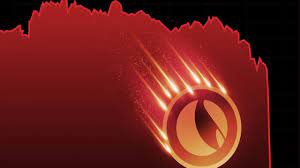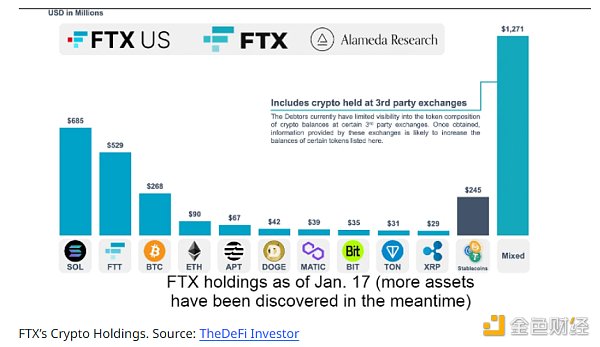As the price of the currency rises, the lemon essence is ready to move?
Yesterday, Matt Novak, author of the tech blog Gizmodo, wrote an article about Bitcoin , titled "Bitcoin rose 15% overnight, because no one learned the lesson since the last crash."
In the article, from the lack of value to its impact on the environment, Novak expressed dissatisfaction with Bitcoin in all aspects.
This article is not only completely inconsistent with the facts, there are a lot of loopholes, and it is misleading for thousands of readers. Of course, Bitcoin does have flaws, but we should raise it objectively and solve these problems through rational debate. But Gizmodo didn't do that. As a respected technology media, Gizmodo has a responsibility to do better, rather than publishing an arbitrary critique and calling it news.

- How does Securities Pass + Identity 设计 design an identity agreement for Securities Pass?
- Now the empty position is completely panic.
- Coinbase will insure the $255 million encrypted hot wallet, which is the well-known insurance group Lloyd's
Since April 2nd, the cryptocurrency market has shown signs of recovery, and many mainstream currencies have risen in different degrees. This is a positive sign for the long-lost cryptocurrency community; some mainstream media and some who are biased against cryptocurrencies are once again incarnate.
This article will point out some of the errors in this article by Gizmodo and hope that this will give readers a better understanding of cryptocurrencies.
1. This article should be categorized as a "view" article, not a news article.
First of all, it is misleading to classify this article as "news". If you think this is "news", please verify the facts. Otherwise, put it where it should be: "opinions" or "points" and issue a disclaimer.
Next, let's talk about the factual errors in the article.
2. “Bitcoin is worthless by any practical standard”?
This is obviously not true. The US dollar is the world's largest and most liquid asset. As of press time, the actual value of Bitcoin is US$5008.77 in US dollars. I think this is a practical measure.
Aside from this, we can say the same thing to the dollar or any other currency. The reason why money is valuable is because we agree that it is valuable. Otherwise the currency is just a pile of waste paper.
3. “Is this a false currency”?
Of course, this is also a fake. Bitcoin is completely legal in many countries. I can use it to buy goods and services on platforms like Overstock and Microsoft. Companies in Ohio can also pay taxes in bitcoin.
This should not be difficult to understand, after all, Gizmodo also published an article on paying bills in Bitcoin. No one said that bitcoin payments are as popular as the dollar, but how to say that bitcoin is not a "counterfeit currency."
4. “Bitcoin has no support”?
fake. Bitcoin is supported by more than 10,000 mining nodes around the world that operate the world's safest financial infrastructure. Only last week, they confirmed more than 2 million transactions.
Let us talk about "real" money. What is supporting the dollar? The United States abandoned the gold standard in 1971, so the dollar will only be supported if it is "completely trusted" by the government. Like bitcoin, the dollar has no support for tangible assets.
5. “Digging requires a lot of energy”?
Well, it makes a little sense. But cash also has a devastating effect on the environment. Where is the metal that is made into coins? If you don't cut trees, where do the banknotes in your pocket come from? Does the MasterCard and Visa cards need to emit carbon dioxide? All of the above things consume no less energy than bitcoin mining.
As the research institute Cato Institute said:
We can only conclude that reports of damage to the environment by cryptocurrencies have been overstated. After studying the volume of transactions, we found that Bitcoin's power usage did not exceed the intermediary payment system.
In addition, the cryptocurrency field is also researching some more efficient solutions, such as lightning networks and PoS.
6. “Google and Facebook ban cryptocurrency ads”?
Google and Facebook did ban cryptocurrency ads in early 2018, but they subsequently withdrew the ban and also restricted cryptocurrency fraud. And Gizmodo himself has issued an article on the ban.
The mainstream media should have a long snack
The author's article in Gizmodo raises concerns about energy consumption, hacking, and fraud, many of which are available, but these issues require neutral reporting and rational debate. However, this article is full of prejudice and lies. For cryptocurrency-related reports, the mainstream media must make some changes.
We will continue to update Blocking; if you have any questions or suggestions, please contact us!
Was this article helpful?
93 out of 132 found this helpful
Related articles
- These file blockchain technologies will affect our food, clothing, housing and transportation.
- Is the non-transferable Token not a security? How does the SEC make a one-size-fits-all "lazy politics"?
- How hard is it to lose money on the exchange and how to recover bitcoin digital assets?
- What are the characteristics of the common identity in the securities pass and identity securities?
- The SEC first issued a "green light" to the tokens, and their lawyers taught you to get a "no objection" letter.
- Encryption technology: promoting the digital process
- What does Schnorr's upcoming multi-signature era mean?





